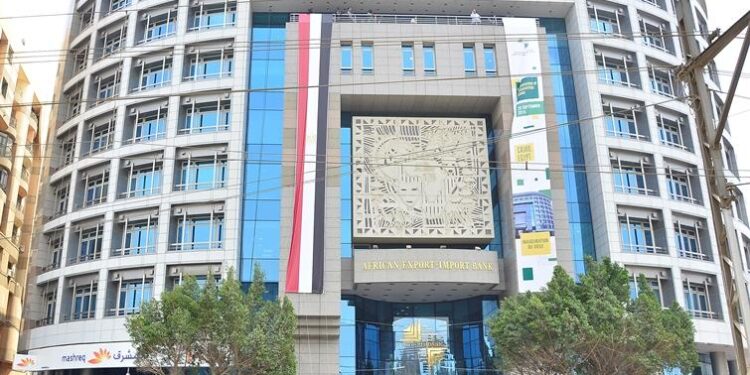The 32nd Afreximbank Annual Meetings have officially commenced in Abuja, Nigeria, bringing together key stakeholders from across the continent to discuss the future of African trade and investment. Hosted by the African Export-Import Bank (Afreximbank), the event serves as a critical platform for policymakers, financiers, and business leaders to explore innovative strategies for enhancing intra-African commerce and boosting economic growth. As Africa navigates a rapidly evolving global economic landscape, this year’s meetings are set to underscore the bank’s pivotal role in driving the continent’s export and import agenda.
Afreximbank Annual Meetings Kick Off in Abuja with Focus on Driving Continental Trade Integration
Leaders from across Africa, including government officials, financial experts, and private sector stakeholders, gathered in Abuja to inaugurate the 32nd annual gathering of the African Export-Import Bank. This year’s sessions are centered on accelerating the continent’s trade integration through innovative policy frameworks and strategic financing models. Afreximbank’s commitment to fostering intra-Africa commerce took center stage, with discussions emphasizing the removal of trade barriers, enhancement of cross-border infrastructure, and the promotion of value chains that bolster regional industrialization.
Key focus areas highlighted during the meetings include:
- Facilitating seamless cross-border payments with the integration of new fintech solutions.
- Supporting SMEs to scale operations across regional markets.
- Strengthening public-private partnerships to unlock new trade corridors.
| Session | Focus Area | Key Outcome |
|---|---|---|
| Trade Infrastructure | Logistics & Connectivity | Agreement on regional transport hubs |
| Financing Mechanisms | SME Access to Capital | Launch of new credit lines |
| Policy Alignment | Regulatory Harmonization | Roadmap for customs reforms |
Key Discussions Center on Enhancing Agricultural Exports and Strengthening Intra-African Supply Chains
Delegates at the event engaged in robust conversations aimed at unlocking Africa’s vast agricultural potential by boosting export volumes and improving market access. Central to these discussions was the need to pivot from raw commodity sales towards more value-added agricultural products to increase profitability and create sustainable jobs across the continent. Stakeholders emphasized the importance of targeted financial instruments, modernized infrastructure, and public-private partnerships to invigorate the agricultural export sector effectively.
Strengthening intra-African supply chains emerged as a critical pathway to reduce dependencies on external markets and foster regional economic integration. Participants identified key barriers such as poor logistics, non-harmonized regulations, and inadequate cold chain systems that currently hamper efficient movement of goods across borders. To address these challenges, several innovative strategies were proposed:
- Digital trade platforms for real-time tracking and transparency
- Standardization of quality and safety protocols aligned with African Continental Free Trade Area (AfCFTA) guidelines
- Investment in regional storage and processing facilities to minimize post-harvest losses
| Focus Area | Action Point | Expected Outcome |
|---|---|---|
| Value Addition | Establish agro-processing hubs | Increase export revenues |
| Logistics | Upgrade cross-border transport | Reduce delivery times by 30% |
| Regulations | Harmonize quality standards | Simplify intra-African trade |
Experts Recommend Policy Reforms and Increased Investment in Infrastructure to Boost Africa’s Export Potential
The discussions at the 32ND Afreximbank Annual Meetings highlighted a unified call from industry experts for strategic policy reforms designed to dismantle trade barriers and streamline cross-border procedures. Emphasizing the urgency of these reforms, specialists advocated for enhanced regulatory frameworks that would simplify export processes, reduce bureaucracy, and boost market access for African businesses. Among the proposed measures, there was strong support for:
- Harmonization of trade policies across regional economic communities to promote seamless commerce.
- Strengthened legal protections to foster investor confidence and safeguard intellectual property rights.
- Incentivization of export-oriented industries through tax breaks and access to financing.
Parallel to policy recommendations, there was unanimous agreement on the critical need to ramp up investments in infrastructure to unlock the continent’s export potential. Delegates stressed that modern, efficient logistics networks and transport corridors are vital for reducing the high costs and delays that currently hinder trade competitiveness. Key focus areas included upgrading:
- Port facilities and customs bond systems to expedite cargo clearance.
- Road and rail links bridging production hubs to international markets.
- Digital infrastructure to enhance supply chain transparency and traceability.
| Infrastructure Focus | Projected Impact | Priority Level |
|---|---|---|
| Port Modernization | Reduce clearance times by 40% | High |
| Transregional Railways | Cut transport costs by 25% | Medium |
| Digital Trade Platforms | Increase transparency by 50% | High |
The Conclusion
As the 32nd Afreximbank Annual Meetings commence in Abuja, Nigeria, the event marks a pivotal moment for Africa’s economic landscape. Bringing together key stakeholders from across the continent and beyond, the meetings underscore Afreximbank’s commitment to fostering trade, investment, and sustainable growth. With a robust agenda focused on innovation, partnership, and resilience, the 2025 gathering promises to chart a dynamic path forward for African economies amid an evolving global environment. Observers and participants alike will be watching closely as strategies developed here begin to shape the future of intra-African trade and development.














